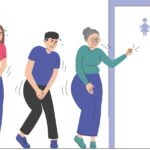The state’s pilot has been slammed as ‘wholly unrealistic’ and lacking protocol, planning and regard for patient safety.
Victoria is set to become the fourth state to allow pharmacists to both prescribe and dispense in limited circumstances, despite AMA Victoria expressing “serious and escalating” concerns and withdrawing from the pilot’s advisory body.
Victoria will join WA, Queensland and NSW on 1 October as it launches a 12-month, $19 million statewide pilot study expanding the role of community pharmacists, which will not be registered as a clinical trial, according to AMA Victoria.
Participants will be allowed to continue the supply of oral contraceptives for women without a prescription, prescribe treatment for mild skin conditions and prescribe antibiotics for “uncomplicated” UTIs in women.
The pilot will also enable pharmacists to administer certain vaccines, after additional training. Details on which vaccines is not yet available.
As the start date looms, AMA Victoria has expressed concerns to the Victorian government over “an initiative which fails to address the critical issues of access and affordability in healthcare, while potentially compromising the safety and health of Victorians”.
As with the current NSW and completed Queensland trials, the pilot will use a “structured prescribing” framework, allowing specific, prescription-only schedule 4 medicines to be dispensed without a prescription from a medical or nurse practitioner in accordance with a guideline or protocol.
But AMA Victoria has said that the pilot, which was born from an election announcement, “lacks proper planning and protocols, bypasses regulatory processes, and operates outside of existing healthcare communication systems, such as My Health Record (MHR)”.
To cover the costs of the administrative burden, pharmacists will be reimbursed $20 by the state government for each service they provide related to the pilot. The government will also cover any PBS gap to ensure the costs to pharmacies will remain the same as under the PBS.
For patients participating in the trial, there will be no cost for an appointment to see a pharmacist. The costs of non-PBS medications will be the same as when prescribed by a GP.
In its suite of 22 questions to the government regarding the pilot, AMA Victoria raised concerns that the additional income pharmacists could make from dispensing schedule 4 medication without prescription may lead to conflicts of interest and would undermine the PBS.
“Additionally, we noted that the lack of external oversight, insufficient consideration of public health needs, and neglect of best-practice women’s reproductive healthcare further raises concerns about patient safety and wellbeing,” it said.
The association asked for more detail on the background research for the pilot, including risk-benefit analysis, and clarification on processes for the trial, such as keeping GPs up to date on dispensed medication.
Additionally, AMA Victoria asked for details on monitoring and record keeping following concerns over antibiotic over-dispensing seen in the Queensland trial.
The association also queried why the government did not accept its recommendation to conduct the pilot as a registered clinical trial. Unlike the initial Queensland pilot, NSW’s trial protocol was published on the Australian New Zealand Clinical Trials Registry three months after the trial began.
The association urged the government to address the concerns raised in their letter prior to commencing the trial. The group also withdrew from the advisory body to the study due to its concern over the unanswered concerns and “several additional significant concerns and limitations that hindered meaningful participation and input”.
The government has not yet responded to the letter.
Despite the pilot starting next month, the process for pharmacies to opt in to the pilot has not yet begun and eligibility criteria for pharmacists and patients are not yet available.
Health Victoria says referral pathways will be outlined in the clinical protocols for the pilot to allow those found to be ineligible to be referred to GPs.





